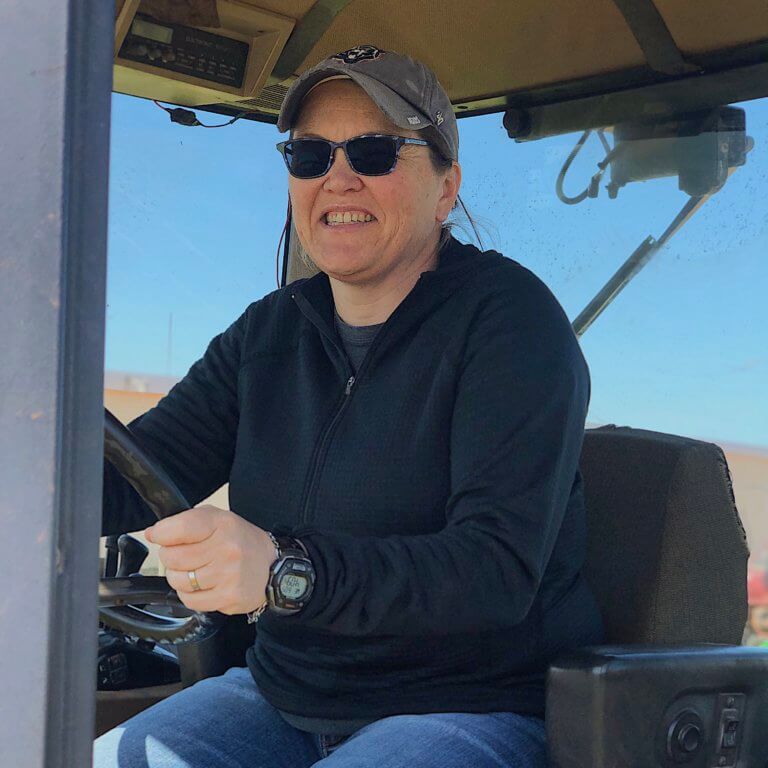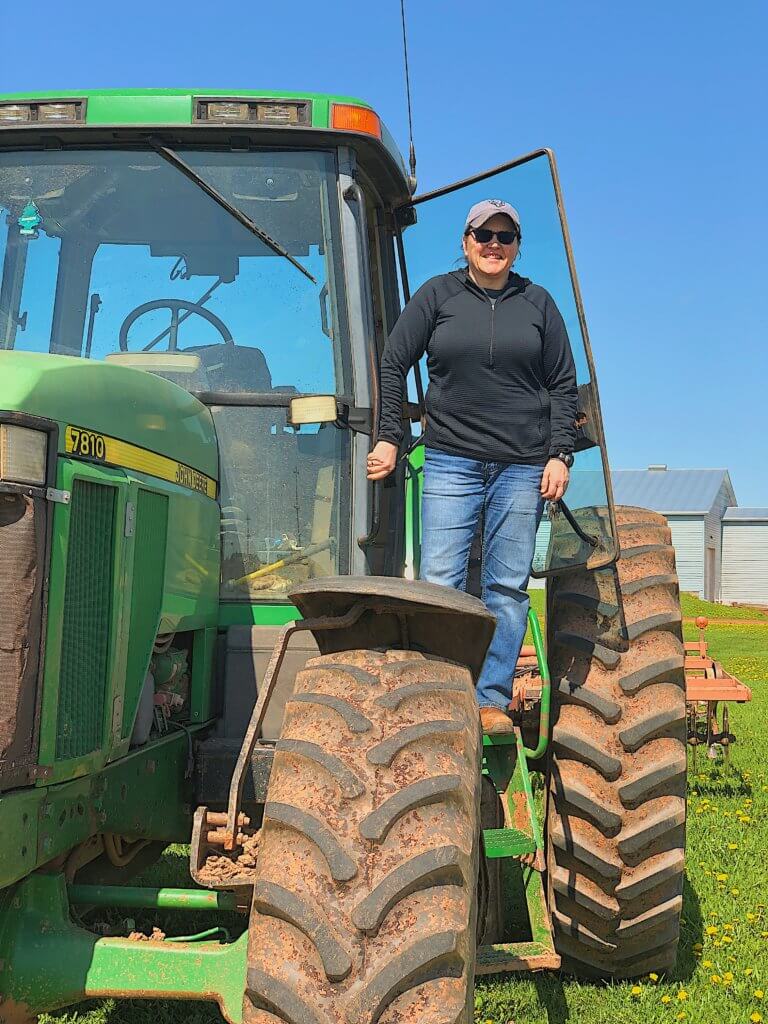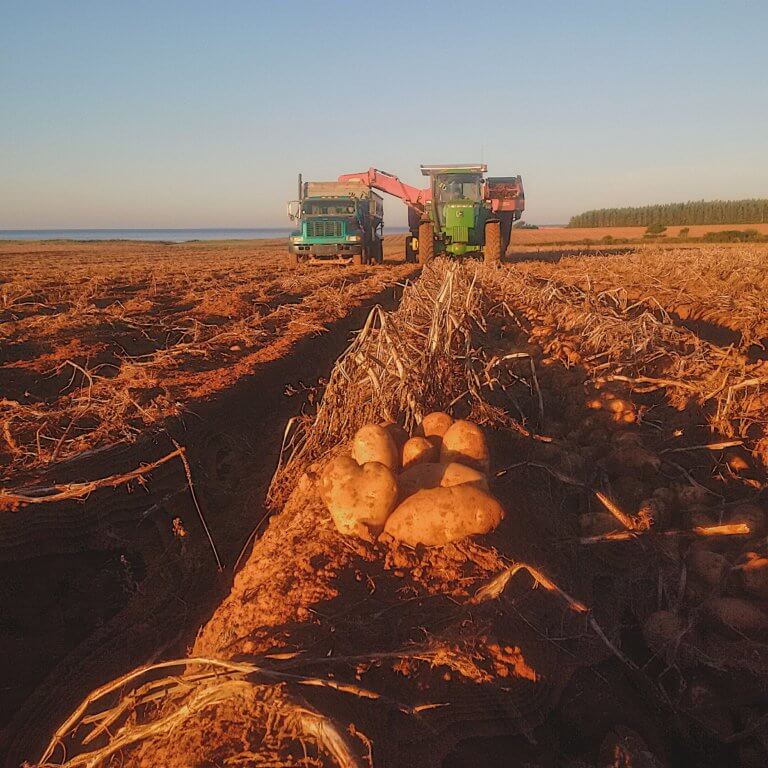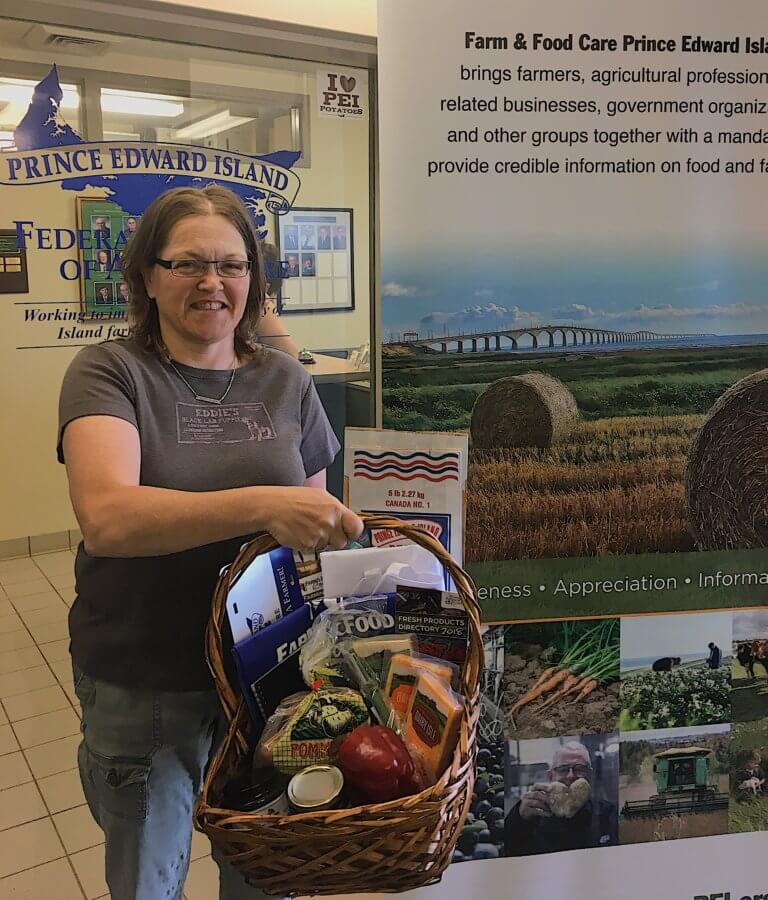Lori Robinson

Looking back, I’d tell my younger self that the best way to learn is by doing. School is valuable, but real growth comes from stepping outside your comfort zone and trying new things, even if they fail.

Lori Robinson grew up on her family’s potato farm in Albany, PEI. Growing up she never pictured herself as being the one in her family to take over her family’s farming operation; but now 25 years later, Lori is proudly the 6th generation of Eric C Robinson Inc. and she couldn’t imagine herself doing anything else. When Lori began her journey in agriculture there were very few female farmers, especially in rural PEI. But Lori never saw being a female building a business in a male dominated industry as a barrier. Over the past decades she has and continues to pave the path for young women becoming involved in agriculture. Even though she spends the majority of her time at the farm, she enjoys travelling the world and coaching her nephew’s curling team during the winter months. Farming is in Lori’s blood and despite the challenges she wouldn’t want to be doing anything else.
Name
Lori Robinson
Occupation
Farm Manager at Eric C Robinson Inc.
What does your job entail?
I oversee the day to day operations of the farming operations, sales of our grain & soybeans, the rental of our land; up until just recently we also grew, washed, packed, and marketed table and seed potatoes. In January 2019 we made the announcement that we would be discontinuing our potato operation. Since then we have rented out the land intended for potatoes, along with renting out the packing plant and potato storages. Going forward we plan to focus more on grains, soybeans and other up and coming crops to PEI. It is still my responsibility to oversee all of the land owned by our family and the company; and oversee growing and managing our main cash crops, soybeans, small grains, mainly barley and some forages.
How long have you been involved in agriculture\food industry on PEI?
I had a genuine interest in agriculture and our family business in my high school years, but after I graduated from the University of Guelph in 1991, I stayed at the university and worked in crop research until February of 1994. I returned to PEI to join my father who was managing the family’s farming operation at the time, and I have been working here ever since.
Are you involved in any extracurricular or community activities?
Within agriculture, I served on the Crop Insurance Board of PEI for 11 years, chairing the board during my final two years. I have also taken on several other volunteer roles within the industry and currently serve as Vice President of the PEI Federation of Agriculture. I believe it’s important to give back to the industry in ways that benefit not just farmers, but all islanders. One of my most passionate areas of advocacy is around land use, by protecting PEI’s farmland and ensuring its long term sustainability. I was the co-chair of the Land Matter Committee advocating for the modernization of the Lands Protection Act and was proud when the committee’s report, “Now Is The Time:, was released in July 2021. That advocacy work continues today as I remain committed to pushing for a comprehensive, province-wide land use plan for PEI.
What’s your favourite way to eat PEI products?
I am a big fan of baby red potatoes, roasted with a little olive oil and herbs. I am not really a fan of putting anything on my potatoes, I like them just plain and simple.
When you were a kid, what did you want to do when you grew up?
I had a lot of ideas growing up, from becoming an underwater photographer to working in medicine or computer science. After being diagnosed with type 1 diabetes at age 11, I was especially interested in medical research. But in the mid 80s, when my brother announced he didn’t want to take over the farm, I realized how much I truly wanted to pursue agriculture. I started following my dad around the farm and quickly knew this was the path for me. Even though there were no female role models in agriculture at the time, my parents never discouraged me. They only supported my interest and encouraged me to follow it.
Looking back, I’d tell my younger self that the best way to learn is by doing. School is valuable, but real growth comes from stepping outside your comfort zone and trying new things, even if they fail. A great example of this is experimenting with growing sunflowers this year, just to see how they’d do. There’s always something new to try in agriculture, and when you’re passionate about it, the sky’s the limit.
What would you want consumers to know about your business and the agriculture/food industry?
Currently there is a disconnect between people who work in agriculture and the consumers who are consuming our products. One of the biggest things that people should remember is that the products that I am growing, I am also feeding my family, neighbors and friends. To me as a farmer, we are producing the safest crops that we possibly can. It is not all about just making money, it is about sustaining and developing our businesses and food efficiently, environmentally, and financially.
Farming required us to wear many hats. We’re business owners, land stewards, and food producers all at once. It’s a constant balancing act, but one we’re proud to take on. At the end of the day, there’s real satisfaction in knowing the work we do helps put food on people’s tables, and we’re committed to doing it in a way that protects the land for future generations.
Why do you do what you do?
There’s something special about being outdoors that drives me. Whether it's the smell of freshly tilled earth or the sense of optimism that comes with planting a new crop. Every season brings a renewed hope, and that feeling keeps me passionate about what I do. I truly love my job, and that love makes it easier to face the long hours, the challenges, and the stress that comes with farming.
I also really enjoy welcoming people to the farm and having conversations about agriculture. People are often fascinated by what we do, and it reminds me not to take it for granted. As farmers, we sometimes assume everyone understands where their food comes from, but in reality, many don’t. It’s rewarding to share our story and help others gain a deeper appreciation for how agriculture works.
Back to Faces of PEI



